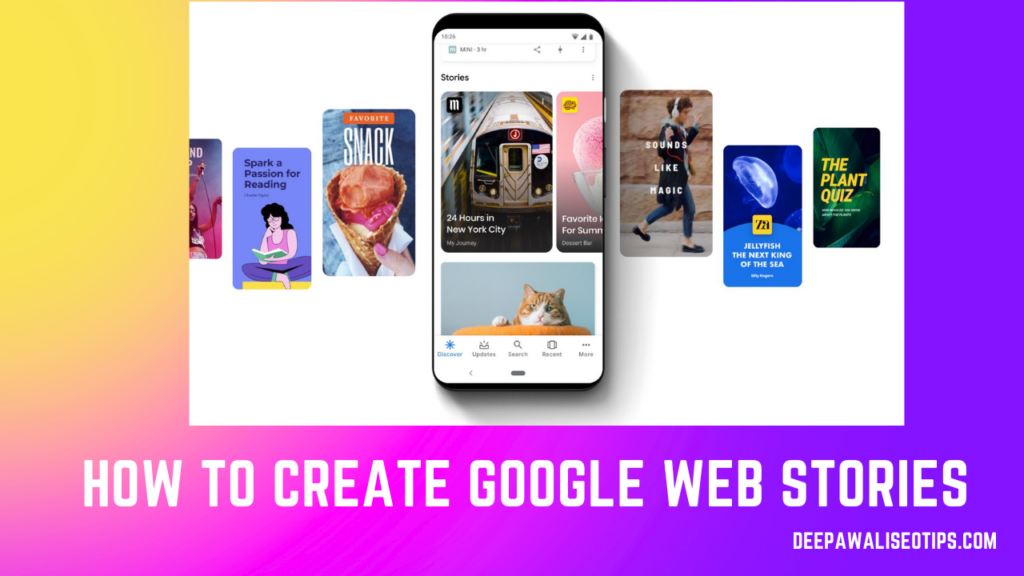Welcome to my blog! In today’s article, I’m going to share with you 10 proven ways to earn money online through blogging. If you’ve ever wondered how to make money online or are looking for online earning opportunities and online business ideas, you’ve come to the right place! Blogging has become a popular way for individuals to turn their passion and expertise into a full-time income.
But let’s face the reality – while many bloggers claim to earn a full-time income from their blogs, only a small percentage actually do. In this article, I will explore various methods that bloggers use to monetize their websites, including affiliate marketing, sponsored posts, advertisements, product sales, services, and more. Each method has its pros and cons, and it’s important to understand how to implement them effectively to maximize your earning potential.
If you have not yet created your blog then do check the step by step guide to create your first blog.

So, whether you’re just starting out in the blogging world or looking to take your existing blog to the next level, these 10 ways to earn money online through blogging will provide you with valuable insights and practical tips. Let’s get started on your journey to financial freedom!
Affiliate Marketing
Affiliate marketing is an excellent way to generate online income through blogging. By partnering with companies and promoting their products or services on your website, you can earn commissions for every sale or lead that is generated through your affiliate links. With the potential for passive income and the flexibility it offers, affiliate marketing has become a popular choice for bloggers looking to monetize their platforms.
One of the key advantages of affiliate marketing is its ease of implementation. As a blogger, you can choose from a wide range of affiliate programs that align with your niche and audience. Once you have selected the right program, you can start incorporating affiliate links into your content, such as product reviews, recommendations, or relevant blog posts. When a reader clicks on your affiliate link and makes a purchase, you earn a commission.
However, it’s important to note that affiliate marketing requires effort and strategic planning. Success in this field relies on building trust with your audience and recommending products or services that align with their needs and interests. It’s crucial to disclose your affiliate relationships transparently and only promote products that you genuinely believe in. Additionally, as competition in the affiliate marketing space is fierce, selecting a profitable niche and effectively driving targeted traffic to your blog are essential for maximizing your earnings.
Pros and Cons of Affiliate Marketing
| Pros | Cons |
|---|---|
| Opportunity for passive income | Requires consistent effort to maintain and grow |
| Flexibility to choose from a wide range of products | Competition can be intense |
| Potential for high commissions | Building trust with your audience takes time |
| Can be integrated seamlessly into your content | Dependent on the purchasing decisions of your audience |
When done right, affiliate marketing can be a lucrative source of passive income for bloggers. By carefully selecting affiliate programs, creating valuable content, and building trust with your audience, you can generate a steady stream of income while providing useful recommendations to your readers.

Display Ads
Display ads are a popular form of online advertising that bloggers can use to generate income from their websites. These ads can be placed strategically throughout the blog, attracting the attention of visitors and potentially generating clicks or impressions. By partnering with advertising networks or directly with companies, bloggers can gain access to a wide range of display ads that are relevant to their audience.
Display ads offer several advantages for bloggers looking to monetize their websites. Firstly, they provide a passive income stream, as bloggers earn money whenever visitors interact with the ads. You can start by creating google web stories.. Additionally, display ads can be a flexible source of income as bloggers can choose where to place the ads on their website and customize their appearance to fit seamlessly with the overall design. Furthermore, display ads can be an effective way to generate income from home, allowing bloggers to work on their own terms and schedule.
However, it’s important to note that display ads may have some drawbacks. They can be perceived as intrusive by some visitors, potentially affecting user experience and increasing bounce rates. Additionally, relying solely on display ads for income may not be sufficient, especially for beginner bloggers. It’s important to explore other methods of monetization and diversify income streams to maximize earning potential.
| Pros | Cons |
|---|---|
| Passive income | Perceived as intrusive by some visitors |
| Flexible placement and customization | Not a standalone solution for income |
| Potential to earn money from home |
In conclusion, display ads can be a viable option for bloggers to generate income from their websites. By carefully considering the pros and cons, bloggers can make informed decisions about incorporating display ads into their monetization strategies. It’s important to strike a balance between generating income and maintaining a positive user experience to ensure the long-term success of a blog.
Sponsored Posts
One of the popular methods bloggers use to monetize their websites is through sponsored posts. This involves collaborating with brands to create content that promotes their products or services. Sponsored posts can be a valuable source of income as bloggers are paid a fee for featuring these posts on their blogs. It allows them to leverage their audience and influence to generate revenue.
However, finding sponsors and maintaining unbiased content can be a challenge. Bloggers need to strike a balance between creating engaging sponsored content and maintaining the authenticity of their blog. It is important to ensure that the sponsored content aligns with the blogger’s niche and target audience to maintain credibility.
To effectively monetize through sponsored posts, bloggers need to establish relationships with brands and negotiate fair compensation for their work. They should also ensure that the sponsored content is clearly disclosed to their audience to maintain transparency. Crafting compelling sponsored posts that resonate with both the brand and the audience is key to success in this monetization method.
“Sponsored posts can be a great way for bloggers to earn income, but it’s essential to carefully select the brands and products that are a natural fit for your audience. It’s important to maintain the trust of your readers while still creating engaging content that meets the goals of the sponsor.” – John Doe
Pros and Cons of Sponsored Posts
| Pros | Cons |
|---|---|
| Opportunity to collaborate with reputable brands | May compromise the authenticity of the blog |
| Potential for high earnings | Finding sponsors can be challenging |
| Ability to leverage audience and influence | Requires careful selection of brands and products |
| Opportunity to create diverse and engaging content | Disclosure requirements to maintain transparency |
In conclusion, sponsored posts offer bloggers the opportunity to monetize their blogs through collaborations with brands. It is important to strike a balance between creating engaging content and maintaining the authenticity of the blog. By carefully selecting brands and products that align with their niche and target audience, bloggers can successfully generate income through sponsored posts.
Consulting and Services

As a blogger with expertise in my niche, I understand the value of offering consulting and other services to my audience. Consulting allows me to share my knowledge and help others achieve their goals. Whether it’s coaching, digital marketing services, or specialized expertise, providing valuable services can be a lucrative way to earn money online.
Offering consulting or services requires effort and dedication. I invest time in understanding my clients’ needs, providing personalized solutions, and delivering high-quality results. Building a reputation as a trusted consultant takes time, but it allows me to establish long-term relationships with clients who value my expertise.
While consulting and services have their challenges, such as delivering quality work consistently and managing client expectations, the rewards can be substantial. By leveraging my expertise and providing valuable solutions, I can generate a steady income and establish myself as an authority in my niche. Consulting and services are one of the many online business ideas that allow me to work from home while helping others succeed.
| Pros | Cons |
|---|---|
| Opportunity to share expertise and help others | Requires effort and dedication to deliver high-quality services consistently |
| Potential for a lucrative income | Managing client expectations and maintaining good relationships can be challenging |
| Establishing authority in the niche | May be difficult to scale the business over time |
Key takeaways:
- Consulting and services can be a profitable way to monetize expertise in a niche.
- Building a reputation and delivering high-quality work is essential for success.
- Challenges include managing client expectations and maintaining good relationships.
- Consulting and services require dedication but offer the potential for a steady income.
Product Sales
One of the most popular ways for bloggers to monetize their websites is by creating and selling their own products. Whether it’s physical products like merchandise or digital products like ebooks or online courses, selling products allows bloggers to leverage their expertise and generate income.
By creating and selling products, bloggers can establish themselves as authorities in their niche and build long-term relationships with their audience. Digital products, in particular, offer scalability and the potential for passive income over time. However, it’s important to note that selling physical products may require more upfront investment and management of sales and shipping logistics.
| Pros | Cons |
|---|---|
| Opportunity for passive income | Higher upfront investment for physical products |
| Establish authority in the niche | Management of sales and shipping logistics for physical products |
| Build long-term relationships with customers |
Selling products on a blog requires careful planning and execution. Bloggers need to identify their target audience, create high-quality products, and develop effective marketing strategies to attract customers. By offering valuable products that cater to their audience’s needs, bloggers can generate a sustainable income and take their blogging business to the next level.

Maximizing Product Sales:
- Create a sales funnel to guide potential customers through the buying process
- Implement effective email marketing campaigns to nurture leads and convert them into customers
- Offer special promotions or discounts to incentivize purchases
- Optimize product listings and descriptions for search engine visibility. You can read our full guide on google search console which is bible for search engines.
- Use compelling visuals and persuasive copy to showcase the value of the products
Online Courses
If you’re looking for a flexible and profitable online business idea, creating and selling online courses can be a fantastic option. Online courses allow you to share your knowledge, expertise, and passion with a global audience, all from the comfort of your own home. By providing valuable educational content, you can not only generate a steady online income but also establish yourself as an authority in your niche.
Building and launching an online course requires careful planning and execution. You’ll need to identify a specific topic or skill that you can teach effectively, conduct thorough research, and create engaging course content. The key is to offer a unique value proposition that sets your course apart from others in the market.
Once your course is ready, you can sell it on your website or through popular online learning platforms like Udemy or Teachable. These platforms provide a ready-made audience and marketing tools to help you reach a larger pool of potential students. It’s important to price your course strategically and promote it actively to attract enrollments and generate income.

Benefits of Creating Online Courses
- Flexibility: You can create and deliver courses at your own pace and schedule, allowing you to work from home and maintain a healthy work-life balance.
- Passive Income: Once your course is created, you can earn passive income as students enroll and access the course materials.
- Expert Status: By sharing your knowledge through online courses, you establish yourself as an expert in your field, opening up opportunities for speaking engagements, collaborations, and increased visibility.
- Scaleability: Online courses can be scaled to accommodate an unlimited number of students, allowing you to reach a larger audience and generate higher revenue.
Creating and selling online courses requires a combination of expertise, effective marketing, and ongoing engagement with your students. By leveraging your knowledge and passion, you can build a successful online course business and generate a sustainable income while making a positive impact on the lives of your students.
Coaching and Mentoring
When it comes to monetizing a blog and earning income online, offering coaching and mentoring services can be a rewarding option. As a blogger with expertise in your niche, you have valuable knowledge and insights to share with others who are looking to learn and grow. By providing personalized guidance and support, you can help your clients achieve their goals and navigate challenges more effectively.
Coaching and mentoring can be done through one-on-one sessions, group programs, or online courses, depending on your preferences and resources. These services can cover a wide range of topics, such as personal development, career advancement, business strategies, or specific skills within your niche. By leveraging your expertise and building strong relationships with your clients, you can establish yourself as a trusted authority in your field while generating a steady stream of income.
However, it’s important to note that delivering high-quality coaching and mentoring services requires significant effort and commitment. You’ll need to invest time in understanding your clients’ needs, developing tailored programs, and maintaining ongoing communication and support. Additionally, ethical considerations are crucial as you guide and empower your clients. By providing value and maintaining professionalism, you can build a reputation as a reputable coach or mentor and attract more clients over time.

| Pros | Cons |
|---|---|
| Opportunity to share your expertise and make a positive impact on others’ lives. | Requires significant time and effort to deliver high-quality services. |
| Potential for a steady stream of income through one-on-one sessions or group programs. | Building a client base and attracting new clients may take time and marketing efforts. |
| Flexibility to conduct coaching or mentoring sessions online, providing the option to work from home. | May face challenges in setting appropriate boundaries and managing clients’ expectations. |
| Opportunity to establish yourself as an authority in your niche and enhance your professional reputation. | Requires ongoing professional development to stay updated with industry trends and best practices. |
Overall, coaching and mentoring can be a fulfilling and profitable way to monetize your blog. By leveraging your expertise, building strong relationships with your clients, and maintaining professionalism, you can create a sustainable business while helping others achieve their goals.
Advertising Network
When it comes to monetizing a blog, joining an advertising network can be a lucrative option. Advertising networks like Google AdSense, Ezoic, and Mediavine allow bloggers to display ads on their websites and earn a commission when visitors click on them. As a blogger, partnering with an advertising network offers several advantages. Firstly, it simplifies the ad management process, as the network takes care of ad placements and optimization. This allows bloggers to focus on creating great content and engaging with their audience.
Furthermore, advertising networks often provide access to a wide range of ad formats and sizes, enabling bloggers to customize their ad placements to suit their website’s design and layout. This helps to ensure a seamless user experience while maximizing the potential for clicks and revenue. Additionally, advertising networks may offer sophisticated targeting options, allowing bloggers to reach their desired audience and improve the relevancy of the ads displayed on their site.
However, it’s important to note that some advertising networks have certain requirements for acceptance, such as minimum traffic thresholds. Bloggers with limited traffic may also have to manage their own ads, which can be time-consuming. Nevertheless, joining an advertising network can be a valuable strategy for bloggers looking to monetize their blogs through online advertising and generate a consistent stream of online income.
| Advantages of Joining an Advertising Network | Disadvantages of Joining an Advertising Network |
|---|---|
|
|

Key Points:
- Joining an advertising network can simplify the ad management process for bloggers by taking care of ad placements and optimization.
- Advertising networks provide access to various ad formats and sizes, allowing bloggers to customize their ad placements to suit their website’s design.
- Some advertising networks may have requirements for acceptance, such as minimum traffic thresholds.
- Bloggers with limited traffic may need to manage their own ads, which can be time-consuming.
Building a Community
Building a community is an essential aspect of successful blogging. By creating a space where readers can engage and share their interests, you can foster a sense of belonging and increase blog engagement. A strong community not only leads to increased traffic but also opens up potential financial opportunities. As a blogger, here are some strategies you can implement to build a thriving community.
1. Encourage Audience Participation
One effective way to build a community is by encouraging audience participation. You can do this by inviting readers to share their thoughts, opinions, and experiences through comments, discussions, or question-and-answer sessions. Actively respond to their comments and engage in meaningful conversations to create a sense of connection.
2. Share Valuable Content
Providing valuable and relevant content is crucial in attracting and retaining community members. Create informative and interesting blog posts that address your readers’ pain points, answer their questions, or offer valuable insights. By consistently delivering valuable content, you establish yourself as an authority in your niche and build trust with your audience.
3. Foster Interaction Among Community Members
Encourage interaction among your community members by creating opportunities for them to connect with each other. For example, you can host live webinars, organize online events, or facilitate discussions on social media platforms related to your blog. By fostering interaction, you create a supportive environment where members can learn from and help each other.
4. Offer Exclusive Benefits
Rewarding your community members with exclusive benefits can further strengthen their loyalty and engagement. This could include offering access to premium content, special discounts, or early access to new products or services. Providing these exclusive benefits shows your appreciation for their support and encourages them to continue participating in your community.
5. Be Consistent and Authentic
Consistency and authenticity are key elements in building a successful community. Be consistent in publishing content, engaging with your audience, and maintaining a regular presence on your blog and social media platforms. Additionally, be authentic in your communication and interactions with your community, as this builds trust and fosters genuine connections.
By implementing these strategies, you can create a vibrant and engaged community around your blog. Building a community takes time and effort, but the rewards in terms of increased traffic, brand loyalty, and potential financial opportunities are worth it.
Tracking Analytics
To maximize online income and effectively measure the success of internet marketing strategies, tracking analytics is a crucial practice for bloggers working from home. By monitoring website analytics, bloggers can gain valuable insights into their audience’s behavior, identify areas for improvement, and make data-driven decisions to optimize their blog’s performance.
Utilizing tools like Google Analytics, bloggers can track key metrics such as the number of visitors, page views, bounce rates, and conversion rates. This data enables bloggers to evaluate the effectiveness of their content, identify popular topics, and understand user engagement. By analyzing these metrics, bloggers can tailor their marketing efforts and content creation strategies to meet their audience’s preferences and expectations.

Tracking analytics also helps bloggers measure the success of their monetization efforts. By examining user behavior and conversion rates, bloggers can determine the effectiveness of different income streams, such as affiliate marketing, sponsored posts, or product sales. This information allows bloggers to focus their efforts on the most profitable avenues and optimize their online income.
| Benefits of Tracking Analytics | Challenges of Tracking Analytics |
|---|---|
|
|
“Tracking analytics allows me to understand my audience better and make informed decisions to optimize my blog’s performance. By analyzing user behavior and engagement metrics, I can continuously improve my content and monetization strategies, ultimately increasing my online income.”
“Analytics is the backbone of internet marketing. It provides valuable insights into your audience’s behavior and allows you to make data-driven decisions to drive your blog’s success.”
Key Takeaways
- Tracking analytics is essential for maximizing online income and understanding audience behavior.
- Tools like Google Analytics help bloggers monitor key metrics such as visitors, page views, and conversion rates. If you are not aware about google analytics then do read the details on how to install google analytics for beginners..
- Analyzing analytics allows bloggers to optimize content, marketing efforts, and income streams.
- While tracking analytics has numerous benefits, it also comes with challenges such as complexity and technical knowledge requirements.
Start with a Niche
When it comes to blogging, choosing a niche is an essential first step. A niche is a specific topic or subject that you will focus your blog content on. Selecting a niche that aligns with your interests and expertise is crucial to your success as a blogger. It not only allows you to create content that you are passionate about but also helps you attract a target audience that is genuinely interested in the subject matter.
“Choosing a niche allows you to establish yourself as an authority in a specific area and differentiate yourself from the competition,” says seasoned blogger Jane Doe.
Having a well-defined niche opens up various opportunities for monetization. You can leverage your niche to partner with brands and companies in the same industry, collaborate on sponsored content, or even develop your own products or services that cater to your niche audience. Additionally, advertisers are more likely to work with bloggers who have a specific niche, as it helps them reach their target audience more effectively.
In selecting a niche, consider a topic that has both profitability potential and a market demand. Research popular topics and trends within your field of interest, and identify gaps that you can fill with your content. By starting with a niche, you lay the foundation for a successful blog with a targeted audience, making it easier to generate online income.
| Advantages | Disadvantages |
|---|---|
| Establish authority in a specific area | May limit your potential audience |
| Attract targeted and engaged audience | Competition within popular niches |
| Opportunities for brand partnerships and collaborations | Requires in-depth knowledge and expertise |
| Higher chance of securing advertising opportunities | May need to constantly stay updated with industry trends |

Summary
Choosing a niche is a critical step in starting a successful blog. It allows you to establish yourself as an authority in a specific area and attract a targeted audience. While there may be limitations and competition within popular niches, a well-defined niche provides opportunities for brand partnerships, collaborations, and advertising. Remember to select a niche that aligns with your interests and expertise, and conduct thorough research to identify profitable and in-demand topics within your field.
Building a Website
When it comes to making money online through blogging, building a professional and user-friendly website is crucial. Your website serves as the foundation for your online business and is the primary platform where you connect with your audience. It’s important to create a visually appealing and functional website that captivates visitors and encourages them to stay and explore.
To start building your website, you’ll need to choose a reliable hosting platform that can provide the necessary resources to support your blog’s growth. Consider factors such as uptime, loading speed, and customer support when selecting a hosting provider. Additionally, choose a domain name that is relevant to your blog’s niche and easy for visitors to remember.
Optimizing your website’s design and functionality is crucial for creating a positive user experience. Make sure your website is mobile-friendly, as an increasing number of users browse the internet on their mobile devices. Additionally, pay attention to the layout, typography, and color scheme of your website to create a visually appealing and cohesive brand identity.
Remember to optimize your website for search engines by incorporating relevant keywords into your content, meta tags, and headings. This will help improve your website’s visibility in search engine results and attract organic traffic. Regularly update your website with fresh, high-quality content to keep visitors engaged and encourage them to return.

Essential Elements of a Website
| Element | Description |
|---|---|
| Hosting Platform | A reliable hosting provider that ensures your website is accessible to visitors at all times. |
| Domain Name | A unique and memorable web address that reflects your blog’s niche and brand. |
| Design | An aesthetically pleasing and user-friendly layout, typography, and color scheme. |
| Functionality | Smooth navigation, fast loading speed, and mobile responsiveness. |
| Search Engine Optimization | Optimizing your website’s content and structure to improve its visibility in search engine results. |
| Content | Fresh and engaging articles, blog posts, and other types of content that provide value to your audience. |
By focusing on building a professional website that offers an exceptional user experience, you can establish credibility, engage your audience, and attract more opportunities to earn money online.
Creating Compelling Content
When it comes to blogging, creating high-quality and compelling content is the key to success. As a blogger, I understand the importance of providing valuable information and engaging stories to my readers. By focusing on creating content that resonates with my target audience, I can build a loyal following and attract more traffic to my blog.
One of the first steps in creating compelling content is to understand my audience. By conducting research and analyzing the interests and needs of my readers, I can tailor my content to provide the most relevant and useful information. This not only helps in attracting new readers but also keeps them coming back for more.
Another important aspect of creating compelling content is to incorporate SEO best practices. By optimizing my content with relevant keywords, meta tags, and headings, I can improve my blog’s visibility in search engine results. This allows me to reach a wider audience and increase the chances of my blog being discovered by new readers.
Furthermore, I believe in the power of storytelling. By sharing personal experiences, anecdotes, and stories, I can connect with my audience on a deeper level. This helps in creating a sense of authenticity and building trust with my readers. I also make sure to include visual elements such as images, infographics, and videos to make my content more visually appealing and engaging.
Example of Engaging Content
“The key to creating compelling content lies in understanding the needs and interests of your audience. By providing valuable information, engaging stories, and incorporating SEO best practices, you can attract more readers and build a successful blog. Remember to be authentic, use visual elements, and tell stories that resonate with your audience.”
In conclusion, creating compelling content is essential for a successful blog. By understanding my audience, incorporating SEO best practices, and using storytelling techniques, I can attract more readers, increase engagement, and ultimately monetize my blog. By continuously improving my content creation skills and staying up-to-date with the latest industry trends, I can ensure that my blog remains relevant and continues to generate online income for years to come.
Conclusion
Earning money online and working from home through blogging requires dedication, hard work, and strategic planning. It’s important to remember that while many bloggers claim to earn a full-time income, only a small percentage actually do. However, by leveraging various monetization methods, bloggers can increase their chances of making money online.
Methods such as affiliate marketing, sponsored posts, advertisements, product sales, and services all offer potential sources of online income. Each method has its pros and cons, and careful planning and implementation are necessary to maximize earning potential.
Building and maintaining a successful blog takes time and perseverance. It’s crucial to focus on providing valuable content to readers and building a strong online presence. By following SEO best practices, creating compelling content, and tracking analytics, bloggers can improve their blog’s performance and attract more traffic.
Remember, there are no guarantees of overnight success in the blogging world. However, with the right strategies and a commitment to providing value, bloggers can achieve their financial goals and enjoy the benefits of earning money online from the comfort of their own homes.
FAQ
Can I really make money online through blogging?
Yes, many bloggers earn a full-time income from their blogs. However, it’s important to note that only around 5%-8% of bloggers actually achieve this level of success.
What are some popular methods bloggers use to make money online?
Some popular methods include affiliate marketing, sponsored posts, advertisements, product sales, services, and more. Each method has its own pros and cons and requires careful planning and implementation to maximize earning potential.
How does affiliate marketing work?
With affiliate marketing, bloggers earn commissions when readers purchase products or services through affiliate links on their websites. It’s an easy way to start monetizing a blog, but it requires work in the beginning and may be difficult to scale without the right niche or team.
What are display ads?
Display ads are advertisements that bloggers can place on their websites to earn money. They can negotiate directly with companies or use ad networks like Google AdSense, Raptive, or Ezoic. Bloggers earn a commission when visitors click on these ads. However, display ads can be intrusive and may detract from user experience.
How do sponsored posts work?
Bloggers can write sponsored posts or create sponsored content in partnership with brands. They get paid a fee based on their website’s traffic and their influence in their niche. Sponsored posts require research, writing, and promotion, but they can be a great way to get paid for your content and build relationships with brands.
Can I sell consulting or other services on my blog?
Yes, bloggers with expertise in their niche can market and sell consulting or other services related to their field. This can include coaching, digital marketing services, or other specialized services. The income potential depends on the type of service offered, but it can be a lucrative way to earn money online.
How can I sell products through my blog?
Many bloggers create and sell physical or digital products on their websites. You can start with free blogger and read the guide to create free website in blogger.. This can include ebooks, online courses, merchandise, or other related items. Selling products allows bloggers to monetize their expertise and build long-term relationships with customers. Digital products are more scalable and can generate passive income over time, while physical products require more upfront investment and logistics.
Can I create and sell online courses on my blog?
Yes, bloggers can create online courses related to their niche and sell them on their websites. Online courses allow bloggers to share their knowledge and expertise with their audience. The income potential varies depending on the course’s price and the size of the audience. However, creating and marketing online courses requires significant time investment and effort to find customers.
Is coaching or mentoring a viable option for earning money online?
Absolutely! Bloggers with expertise in their niche can offer one-on-one coaching or mentoring services to help others learn and grow. Coaching services can be rewarding and offer a solid income. However, delivering quality services and maintaining relationships with clients requires significant effort and ethical considerations.
What are advertising networks?
Bloggers can join advertising networks like Google AdSense, Ezoic, or Mediavine. These networks allow bloggers to display ads on their websites and earn a commission when visitors click on them. Becoming a part of an advertising network can simplify the ad management process, but it may have minimum requirements or require the blogger to manage their own ads if they have limited traffic.
How can I build a community through my blog?
Bloggers can focus on building a community where readers can engage and share their interests. Encouraging audience participation through discussions, questions, or sharing articles can foster a sense of community and increase blog engagement. A strong community can lead to increased traffic, brand loyalty, and potential financial opportunities.
Why is it important to track and analyze website analytics?
It’s important for bloggers to track and analyze their website analytics to understand their performance. Tools like Google Analytics can provide insights into the number of visitors, page views, and click-through rates. Monitoring these metrics can help bloggers make data-driven decisions to improve their blog’s performance and potentially increase earnings.
How do I choose a niche for my blog?
When starting a blog, it’s essential to choose a niche that combines your interests and profitability goals. Focusing on a specific topic can help attract a target audience and establish authority in that area. A well-defined niche can also lead to monetization opportunities and partnerships with brands or companies in the same industry.
What do I need to build a professional website for my blog?
To make money online through blogging, it’s crucial to build a professional and user-friendly website. This involves selecting a reliable hosting platform, choosing a domain name related to your blog’s niche, and optimizing the website’s design and functionality. A well-designed website can attract and retain visitors, ultimately leading to increased monetization opportunities.
How important is creating high-quality content for my blog?
Creating high-quality and engaging content is essential for a successful blog. Along with that utilise the backlink strategy by commenting on top 10 high quality blogs to increase your website reputation.. Bloggers should focus on providing valuable information, entertaining stories, or educational resources that resonate with their target audience. Following SEO best practices, such as optimizing keywords and using subheadings, can help improve the blog’s search engine rankings and attract more traffic.
Is earning money online through blogging guaranteed?
Earning money online through blogging requires dedication, hard work, and strategic planning. While many bloggers have achieved success, it’s important to understand that it takes time and perseverance to build a profitable online business. With the right strategies and a focus on providing value to readers, bloggers can achieve their financial goals and enjoy the benefits of earning money online.



